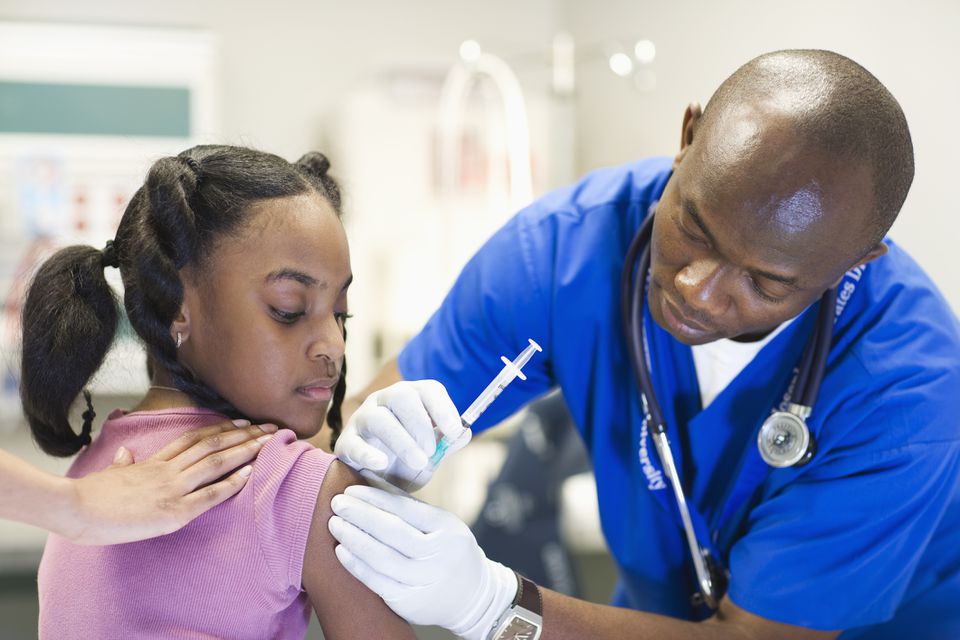In most parts of the world, there is a rigorous vaccination schedule designed to keep infants and children protected against preventable diseases. As a result of most vaccination discussions being centered around children, many adults may not realize that there are vaccinations for adults as well.
These vaccinations may be beneficial for keeping you and your loved ones safe from illness and disease as well.
The Centers for Disease Control (and Prevention) CDC publishes Immunization Schedules for adults as well as for children. The vaccinations recommended on these schedules vary according to an individual’s age, health, previous vaccinations, and risk factors. Here are some vaccines that the CDC suggests may be beneficial for adults.
Tetanus
For adults, the CDC recommends a tetanus vaccine every 10 years. The original vaccine is given once as a Tdap vaccination that offers protection against tetanus, diptheria, and pertussis. After the initial dose, a tetanus and diphtheria booster, Td, can be given every ten years. Tetanus vaccination offers protection against Clostridium tetani,which may infect the body through a dirty wound and releases toxins that cause all the muscles in the body to painfully contract. Failure to keep up with tetanus vaccinations can result in a painful condition called lockjaw. The term lockjaw comes from an affected person’s difficulty in opening the mouth.
Herpes Zoster (Shingles)
The CDC recommends the shingles vaccine for adults age 50 and older. This vaccine prevents the painful condition known as shingles or herpes zoster. Shingles is a viral infection that may cause a rash and nerve pain. It often occurs on one side of the affected person’s torso. Signs and symptoms of shingles include pain, burning, numbness, pus-filled blisters, and itching. Risk factors for shingles include a prior chickenpox infection, age over 50, a weakened immune system, and radiation or chemotherapy. The CDC recommends adults over the age of 50 obtain two doses of the Shingrix vaccine.

Varicella (Chickenpox)
The CDC recommends two doses of varicella vaccine for adults born after 1980 who have not had either chickenpox infection or the varicella vaccine. There are several serious side effects or complications of chickenpox infection. These include Group A strep skin infections, pneumonia, encephalitis, bleeding disorders, sepsis, dehydration, and death. Some people may still get chickenpox despite vaccination. However, in such cases the uncomfortable symptoms of itching, blistering, and fever are usually less severe. Also, vaccinated patients usually experience a faster recovery.
Human Papillomavirus (HPV) HPV
The CDC recommends two to three doses of HPV vaccinations for teenagers age 11 to 26. The number of doses depends on the age of the first vaccination. Men between the ages of 22 and 26 may benefit from the HPV vaccine if they have certain risk factors. The CDC recommends obtaining the first dose of HPV vaccine at around age 11. HPV refers to a group of viruses that people contract through sexual contact. These viruses can cause genital warts. Additionally, HPV can lead to various types of cancer, including cervical, anal, vaginal, penile, and throat cancer.
Measles, Mumps, Rubella
Adults born after 1957 who have not been vaccinated or do not show signs of immunity to measles, mumps, and rubella should receive one dose of MMR vaccine. Since the anti vaxxing debate started, the CDC has reported over 1,200 cases of measles between January 1 and August 15, 2019. This is the highest number of reported cases since 1992. A bout of measles may present as fever, coughing, runny nose, muscle pain, sensitivity to light, and a rash that spreads downward from the head. Those at risk for measles include unvaccinated persons traveling to areas with measles outbreaks and those living in close quarters with others who may have measles.
Hepatitis B
While vaccination against hepatitis B is not necessary for every adult individual, certain populations may benefit from this vaccine. The CDC recommends that healthcare workers who come into contact with blood or blood products be vaccinated. Other individuals who may require the protection of hepatitis B vaccines. These include diabetic patients, those with liver or kidney disease, persons who engage in sex with more than one sex partner, and individuals with sexually transmitted diseases. Furthermore, if you live in a country like Nigeria where hepatitis is prevalent, vaccination against hepatitis B is advisable.
Meningococcus
The CDC recommends meningococcal vaccines in certain situations for individuals over the age of 19. There are two types of meningococcal vaccines. MenACWY or MenB may be beneficial for persons with conditions such as sickle cell disease, HIV, or persistent complement component deficiency. This vaccine may also be beneficial to those traveling to countries in which there is rampant meningococcal disease. Additionally, the CDC recommends MenACWY for certain first-year college students and military recruits because menningococcus is easily spread in dormitory style accommodation. Some healthcare workers may also require the protection provided by meningococcal vaccination.
Pneumococcus
The CDC recommends that adults over the age of 65 receive one dose of a pneumococcal vaccine. This vaccine can prevent infections by the bacterium Streptococcus pneumoniae. This bacterium can cause diseases such as pneumonia, meningitis, blood infections, sinus infections, and ear infections. Additionally, persons age 19 to 64 who suffer from a weakened immune system or chronic lung, liver, or heart disease may benefit from this vaccine. Other conditions that may warrant pneumococcal vaccination include alcoholism, smoking, diabetes, and leukemia. Furthermore, persons with cochlear implants are also at risk for pneumococcal infections and may benefit from vaccination.

Vaccination is important for prevention of many diseases. It is thanks to vaccinations that we have seen the eradication of diseases such as polio. Some of these diseases may not be considered very serious because they are daily common and we all know people who have had them, but even cases of “simple” measles and chicken pox have led to death.
Individuals who have reduced immunity for whatever reason, including organ transplants, cancer treatment, splenectomy and so on are at increased risk for all diseases and should ensure that their vaccinations are up to date at all times.










